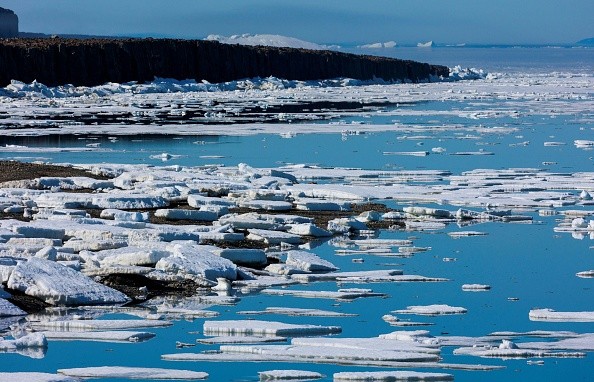Researchers unveiled a concerning study about the increasing rate of ice melting and ocean acidification, showing the environmental threat to marine life, including the survival of plants, coral reefs, and ecosystems.
The research is the first Arctic acidification analysis with data from 1994 to 2022.
NOAA explained ocean acidification's impact on oceans could harm marine species living in the sea.
The effect is considered a part of global climate change, from the human-caused pollution that has an environmental impact on the marine ecosystem.
NOAA emphasized the immediate importance of mitigating climate change as it will also help save the ocean.
Science journal published the study, which is available to read in ScienceDaily.
Wei-Jun Cai was the chief scientist, with 27 others in the research. NOAA supported the project.
The international team includes the work areas on the Pacific Coast, Alaska and Arctic region, parts of the East Coast, and the Gulf of Mexico.
Environmental concerns

On the other hand, the research added that in 2050, arctic sea ice in the region would no longer survive the increasingly warm summer seasons or temperatures, noting the rate of sea ice melting would affect the ocean's chemistry, leading to more acidic.
NOAA noted that the increasing acidification could lead to environmental harm to sea creatures' population, plants, and humans' livelihood.
Based on the research at a conference in Shanghai, the surprising data revealed that the water acidity was increasing three to four times faster, which the researchers identified the effect of the melting of sea ice during summer seasons in the Arctic.
Marine expert Cai explained the essence of international collaboration to study and collect data.
Cai is also a professor in the School of Marine Science and Policy in UD's College of Earth, Ocean, and Environment.
Key Mechanisms
Researchers enumerated key mechanisms in increasing acidification and the rate of melting ice.
Moreover, the Cai emphasized the discovered mechanism's significance in understanding and predicting future changes.
- The researchers explained it would be difficult to mix in deep waters when the seawater could be combined with meltwater, allowing the carbon dioxide to concentrate on the surface.
- Moreover, ocean water under the sea ice showing a deficit in carbon dioxide could cause harmful exposure to atmospheric dioxide.
- On the other hand, it revealed a concerning result: when meltwater mixes with the seawater, it weakens the water's ability to neutralize the harmful carbon dioxide into bicarbonate. It also associates with a decrease in pH in the ocean.
The researchers noted that the 20 more years trend revealed that summer acidification would be impactful.
The effect of ice melting and ocean acidification is alarming, raising concerns over the effect on the marine ecosystem.
According to the study, the international team who conducted the research consists of: Di Xi works with Chinese research institutes in Xiamen and Qingdao; marine chemistry expert Wei-Jun Cai, University of Delaware, with UD postdoctoral researcher Zhangxian Ouyang.
Also part of the collaboration are scientists from different countries, Russia, Chinese research sites, Sweden and Seattle.
For more similar stories, don't forget to follow Nature News.
© 2026 NatureWorldNews.com All rights reserved. Do not reproduce without permission.





